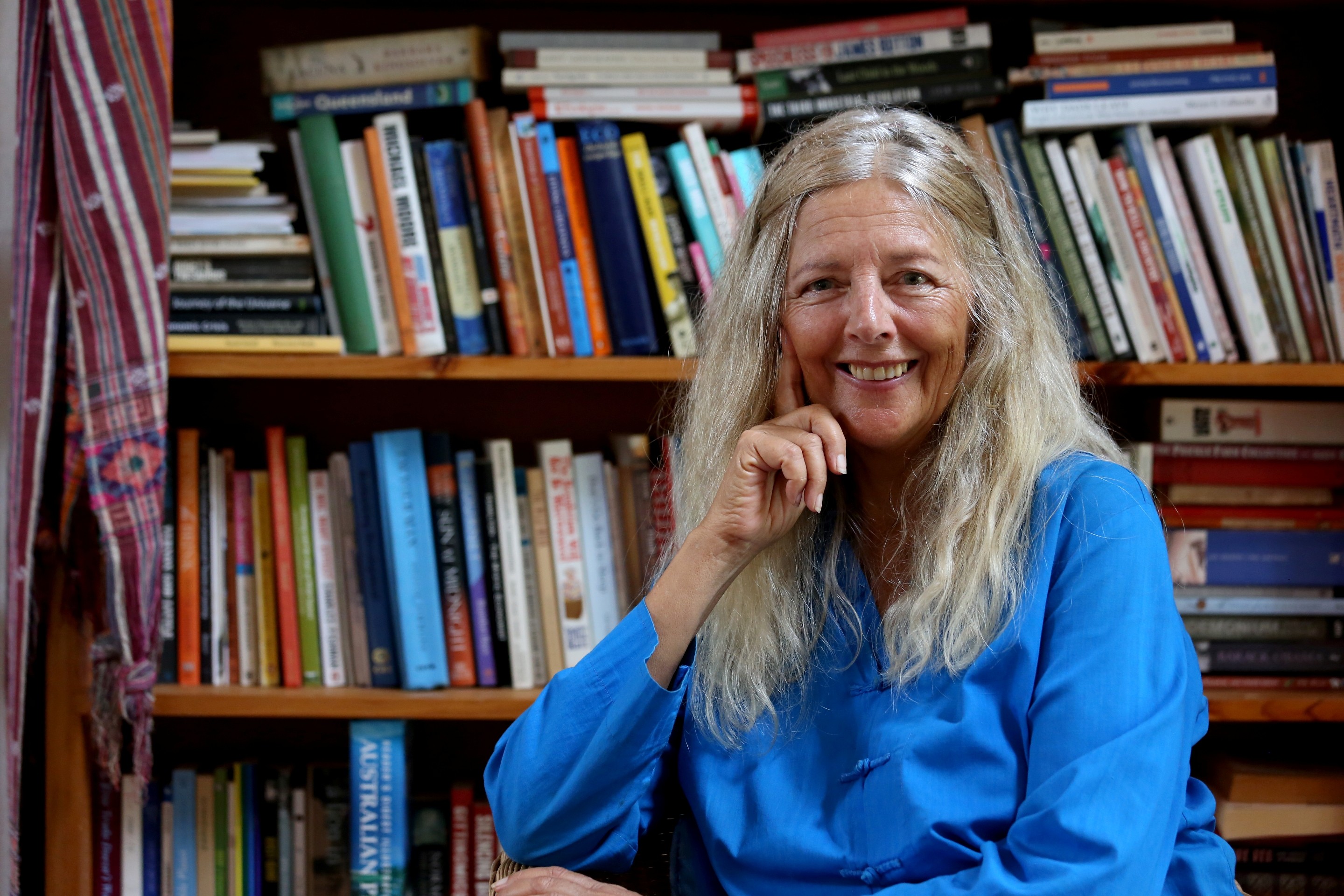Helena Norberg-Hodge is the founder and director of Local Futures, a nonprofit organization that advocates economic localization, particularly in agriculture. In 2011, she co-directed and produced a documentary titled “The Economics of Happiness.”
What does interdependence look like in so-called “traditional” economies?
In places like Ladakh (Kashmir), the very clear difference between a more land-based, community-based economy and the really quite artificial, fossil fuel-based urbanizing development is very stark. In the traditional context, people had a scale in the economy, which meant that they could see that they depended on others; they shared common grazing areas, which they managed jointly. So the interdependence, both with other people and with the land and the animals, and the water and natural resources was very clear and very visible because it was on a human scale.
Is there any way to incorporate these ideas in our current economy?
So many people alive today have only experienced small, rural communities that have been marginalized and, in many ways, decimated by the centralized, fossil fuel-based, global market. In those situations, you find people who are often just as dependent on faraway institutions, but they’re living on the periphery and they feel even less control. As a consequence of that insecurity, they become intolerant. It is difficult to persuade people of what I have to say when people have never experienced smaller communities that were in charge of their lives and interdependent in a way that nurtured cooperation…Fortunately, new initiatives are demonstrating that [interdependence] is not only desirable and possible, but that it’s actually happening.
Where do you see interdependence initiatives taking root in our fossil fuel-based economies?
I’m most familiar with the setting up of farmers markets…which we’ve worked to set up around the world. Those markets make the relationship between farmer and consumer completely different, because the interdependence between farmer and consumer becomes clearer. Many farmers have been pressured to produce standardized products that are exactly the same size and completely unnatural — producing apples and potatoes the way you would tennis balls. The farmers market is like entering into a new galaxy, because [farmers] can sell every single one of their potatoes or apples. It doesn’t matter if some are smaller or bigger, it doesn’t matter if some have brown spots on them. The discerning consumer actually prefers that [variation], because the perfection of the supermarket is brought through lots of chemicals. Even farmers who were more right-wing or not green at all, they’re in a situation where the spots on the fruits and vegetables don’t matter, and they have conversations with consumers who would like to see fewer chemicals. So we are now in this win-win situation where many previously held ideologies on both sides start falling away. This is an example of how we can not only recover some interdependence, but how it’s already happening through the localization movement.
Are top-down policies needed to fundamentally change the system, or are grassroots movements enough?
I’m definitely trying to encourage changes in policy, but our approach has been that we’re trying to educate members of the environmental movement to start looking at policy and notice that chemical ridden monocultures are there because of policy. We’ve been subsidizing them for generations. We can shift those subsidies up front. We can look at our annual budget. To get businesses that are taxable, they need to be more place-based and visible — we need to be able to regulate these businesses and tax them and to choose what we use those taxes for. In terms of regulations, and taxes, and subsidies, there are huge changes that could be made. We feel those changes won’t come about if a few of us start lobbying a few politicians. We need to see a movement — an Occupy Two, if you like — which is very different in that it has a clearer analysis of how and why things have gone so wrong and how and why we want to change things.
Are you excited by the rise of popular figures on the left such as Jeremy Corbyn in Britain and Bernie Sanders in America?
I am excited about it, and I do think it’s good. However, I feel the deeper, broader analysis our movement brings to the table is still not getting the voice that it needs. Unfortunately, almost everywhere you look, you see analyses from a particular national stance. I often describe what we do as looking at the global system from the bottom up. You see then that the global system constitutes a monopoly that is giant, consisting of deregulated banks that are producing money in a way that most people don’t understand. In effect, money is produced out of thin air — delinked from gold or any standard. That creation of money is pushing and supporting at the same time the Walmarts and McDonald’s and Monsantos of the world to move into every local and national market. In that light, a left stance of trying to regain control by governments is important. The nation-state often has been a clumsy top-down structure and has not been able to respond to ecological realities, nor to social or cultural realities, so we really need further decentralization. Privatizing downwards into smaller enterprises is in many cases far better than having government-run enterprise.
Are alternative ideas like yours being heard, or do you think they are still largely on the fringe?
We are not getting into the media. We need well-funded, think tank type activity to get a different picture out. One other point that I want to stress is that the localization movement is incredibly vast and growing incredibly quickly, but it doesn’t see itself as a movement. It consists of all these countless initiatives — everything from seed-saving to some regional and local governments now trying to procure local food. We believe that once these initiatives see themselves as part of a larger movement, that’s when they will gain momentum.
